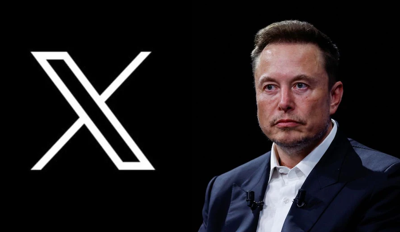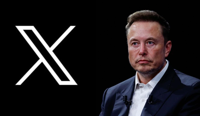
Elon Musk
ORLANDO, Fla. – A federal judge has sided with Elon Musk’s X Corp. in a request to exclude expert witness testimony in a trademark dispute brought by a Florida-based legal marketing agency.
Judge John Antoon II, for the U.S. District Court for the Middle District of Florida, issued his order Sept. 5.
The plaintiff in the case, X Social Media LLC, and defendant X Corp. had moved to exclude aspects of the opposing experts’ opinions under Daubert and Federal Rule of Evidence 702.
A Daubert motion is a formal request to exclude expert witness testimony on the grounds that the expert's methods, standards, or principles are unreliable, not relevant, or scientifically invalid. The name comes from the U.S. Supreme Court case Daubert v. Merrell Dow Pharmaceuticals Inc.
The purpose is to ensure reliable and relevant evidence reaches the jury, with the judge acting as a “gatekeeper” to evaluate the scientific validity of the testimony.
Federal Rule of Evidence 702 also governs expert testimony, allowing a qualified expert to testify in the form of an opinion if their specialized knowledge will help the court understand evidence or a fact in issue.
In his order, Antoon takes aim at professor David J. Franklyn, a trademark law scholar.
X Social Media, which operates an advertising agency that designs and runs social-media advertising campaigns for mass tort and class action law firms, retained Franklyn as an expert to advance their theory of the case against X Corp.
The advertising agency, which also owns a federal trademark registration for the mark X SOCIALMEDIA and began using it in 2015, alleges X Corp.’s social media platform X causes confusion. X Corp. acquired Twitter in 2022 and rebranded the platform as X.
In August 2023, X Corp. received a cease-and-desist letter from X Social Media objecting to Musk’s company’s use of the “X” mark. Soon after, the advertising agency filed their lawsuit in the Florida federal court.
The 2023 rebrand, the plaintiff argues, is “likely to cause reverse confusion – that is, to lead consumers to believe plaintiff is affiliated with or sponsored by Defendant – and that consumers will forgo engaging plaintiff’s services as a result.”
X Social Media, in its lawsuit, also claims X Corp. has violated Florida laws for unfair competition and trademark and service mark infringement.
Both parties retained experts; X Corp. retained marketing scholar Peter Golder and survey practitioner Hal Poret.
Golder, according to Antoon’s order, analyzed the product markets in which the parties operate and claims reverse confusion is improbable. Poret conducted a consumer-perception survey to test for the likelihood of reverse confusion and found minimal confusion.
X Social Media’s Franklyn disputes Golder’s market-structure analysis and argues Poret limited his survey “universe” to representatives of law firms and advertising agencies, instead of surveying consumers who view the agency’s ads on social media.
Both parties moved to exclude aspects of each other’s expert opinions.
Antoon, in his 25-page order, agreed with X Corp. in that Franklyn is unqualified to rebut Golder. The judge noted his “academic training” is in history, philosophy, religion, and law.
“Although he once held a ‘Business, Marketing and Advertising’ professorship, his courses focused on branding as a legal concept and survey design,” Antoon wrote. “They did not address marketing science. He has never practiced marketing, has never attended a marketing conference, and did not review the literature on which Professor Golder relied.
“Plaintiff has not carried its burden to show Professor Franklyn is qualified to opine on marketing science.”
Antoon said Franklyn’s critiques of Golder also fail because they are not based on “reliable principles and methods.”
“Professor Franklyn’s report does not cite any empirical data, consumer research, or marketing framework to support his opinion,” the judge wrote. “Similarly, Professor Franklyn’s opinion that negative publicity about defendant would diminish plaintiff’s advertising effectiveness is speculative and does not contain any methodology for measuring reputational effects on advertising.
“His ‘alternate scenario’ of reverse confusion also fails to articulate any testable framework and must also be excluded.”
Antoon said Franklyn’s view that a reverse-confusion survey must include individuals beyond the senior user’s actual customer base is “methodologically unsound.”
“The Eleventh Circuit has made clear that the relevant universe in a reverse-confusion case consists of the senior user’s customers,” he wrote. “Professor Franklyn identifies no authority that would justify expanding the survey universe to ‘secondary consumers’ with no role in purchasing plaintiff’s services.”
Antoon, in his order denying the plaintiff’s Daubert motion, ruled that Franklyn’s critiques of Golder and Poret must be excluded.





